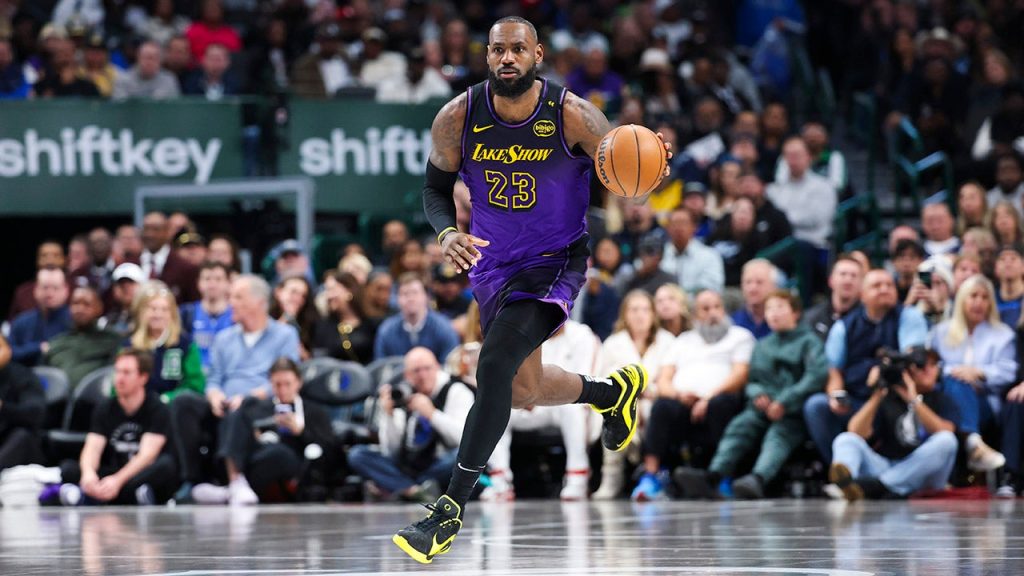LeBron James, the iconic Los Angeles Lakers forward, recently found himself in a friendly, yet revealing, debate about the ownership of Christmas Day viewership between the NBA and the NFL. Initially, following the Lakers’ Christmas Day victory over the Golden State Warriors, James proclaimed with confidence that Christmas belonged to the NBA, a statement made amidst the festive atmosphere of a hard-fought win. However, the subsequent release of viewership numbers painted a different picture, one that James humorously acknowledged.
The NBA enjoyed a successful Christmas Day, attracting an average of 5.2 million viewers across its five-game slate, the highest Christmas viewership in five years. This represented a positive trend for the league, indicating a resurgent interest in its holiday programming. However, the NFL, broadcasting two games on Christmas Day, dwarfed the NBA’s numbers, drawing a staggering 24.2 million viewers for its matchups. This stark contrast in viewership forced James to playfully concede the ratings battle, admitting that the NFL had “kicked [their] a–” in terms of audience reach.
Despite the NFL’s clear dominance in viewership, James offered a nuanced perspective on the situation. He attributed the NFL’s success partly to external factors, particularly the halftime performance by Beyoncé, a global superstar whose presence undoubtedly boosted viewership. He also pointed to the compelling narratives surrounding the NFL games, referencing Patrick Mahomes and Travis Kelce’s performance for the Kansas City Chiefs against the Pittsburgh Steelers. However, he jokingly maintained a sense of pride for the NBA, comparing the situation to a younger brother standing up to a bigger sibling, even after taking a beating. This analogy captured the spirit of friendly competition between the two leagues, acknowledging the NFL’s current dominance while still affirming the NBA’s relevance and appeal.
James’s initial declaration and subsequent retraction underscore the evolving landscape of sports viewership, particularly on major holidays like Christmas. While the NBA has historically held a prominent place in the Christmas Day sports lineup, the NFL’s growing popularity and strategic scheduling have increasingly challenged its dominance. The competition for viewers on these key dates reflects the broader struggle for audience attention in a fragmented media environment. The NFL’s ability to leverage star power, like Beyoncé, and capitalize on compelling storylines gives it a distinct advantage in attracting a wider audience.
The incident also highlights the increasing importance of viewership metrics in the world of professional sports. These numbers not only dictate advertising revenue and broadcasting deals but also shape the narrative around a league’s popularity and cultural impact. James’s initial bravado, followed by his humorous concession, demonstrates the power of these metrics in shaping public perception. The episode became a lighthearted but telling example of how viewership numbers can influence the conversation and even prompt playful banter among athletes and fans.
Looking ahead, the competition for Christmas Day viewership between the NBA and NFL is likely to intensify. With Christmas falling on a Thursday in 2024, the NFL has the potential to schedule even more games, further encroaching on the NBA’s traditional holiday territory. This evolving dynamic will continue to test the NBA’s ability to attract viewers and maintain its relevance on a day traditionally associated with basketball. The league will need to innovate and strategize to compete with the NFL’s growing dominance, perhaps by leveraging its own star power and creating compelling storylines to draw in a larger audience. The battle for Christmas Day viewership will continue to be a fascinating subplot in the ongoing rivalry between these two major sports leagues.

